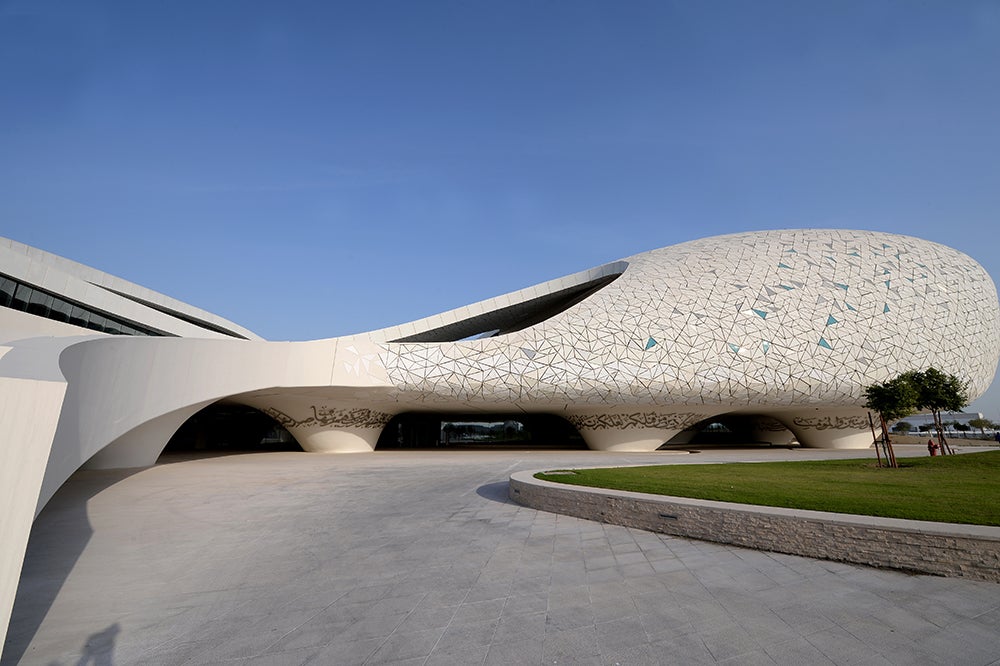
With Qatar now in Phase 4 of its re-opening, we spoke to all six colleges at Hamad Bin Khalifa University (HBKU). In our first in a series of two features, the deans of the College of Public Policy, the College of Law, and the College of Islamic Studies share their thoughts on lessons learned from the pandemic, reasons to be hopeful and cautious, and their predictions for what the future may hold in their respective fields.
Dr. Leslie A. Pal, Founding Dean, HBKU College of Public Policy
One lesson we learned from these past painful months, is that effectively addressing the pandemic requires the support and compliance of the population. We’ve seen the world over that compliance with reasonable control measures makes a difference – governments can’t put police officers in every building. People have to agree to take basic precautions, like social distancing and wearing masks in public spaces. I was struck by how much Qatar has benefited from high levels of compliance. Of course, there has been the temptation to gather with family and friends, but, overall, the level of compliance has been quite high – people on streets, in shopping malls, or even alone in their cars, wearing masks, for example.
This is the foundation for being cautiously hopeful as we move into Phase 4 of re-opening. People and organizations throughout Qatar understand that our success in flattening the curve was a collective success. We know that phased re-opening is the best way forward, making careful assessments of the impact, and if necessary, stepping back. I am very hopeful that the measured approach taken here in Qatar will pay off – gradually getting back to something closer to normal life, while protecting health and safety.
The pandemic’s impact on research in public policy will be profound. The College of Public Policy is currently running a major research project tracking policy response in the MENA region, which will give us a rich dataset on which responses seemed to be most effective and those that weren’t. Our policy briefs and research papers arising from this project will be a major resource for the government of Qatar, as well as other governments and international agencies.
Dr. Susan L. Karamanian, Dean, HBKU College of Law
Over the past five months, the College of Law has remained a vibrant community, although our students, faculty, and staff have not met in person. How did this happen? The quick, effective, and sustained action of HBKU IT has been an essential element. Thus, the first lesson is one of gratitude to those who took our calls at all hours, to ensure a functioning virtual world.
We faced many hurdles, yet I rarely heard “that is not possible.” Faculty, staff, and students alike embraced the challenge of moving everything from a physical to a virtual room. If anything, the optimism of humanity emerges as a defining quality of this unprecedented time. Patience has also served us well. Coupled with both are resiliency and our belief that this unseen virus was not going to stop us from learning.
Although we have been and still remain at a distance, we have been able to expand our horizons well beyond anything imaginable in early March. Thanks to technology, our doors are now open to lawyers, law professors, law students, and others from around the world. We need not get on an airplane and travel thousands of miles to understand each other.
As we prepare to welcome new and returning law students, we are first committed to their health and safety, as well as that of the faculty and staff. This goes beyond physical aspects, as one of the biggest challenges has been tackling the emotional effects of isolation. Staying connected through the virtual medium has been our only option and, at least for the first month of the new term, this will remain so. Yet there will come a time soon when we again come together in a single physical room, and, with that, I trust we will experience a new sense of togetherness.
Dr. Emad El-Din Shahin, Dean, HBKU College of Islamic Studies
We continue to operate under interesting circumstances, which has instilled a sense of confidence in our collective ability to rise above adversity. Our consistent communication at the level of the college, HBKU, and Qatar Foundation (QF) as a whole has been key in relaying a sense of trust and solidarity, without glossing over the practical implications of the changes around us.
As leaders, we have an acute sense of responsibility to protect the interests of our respective communities. It was because of this consistent message of solidarity that students made concerted efforts to complete their term, despite the obstacles. Faculty continued to engage with students and provide development opportunities over the summer, researchers found ways to persist in their pursuit of knowledge and discovery, and our administrators ensured that operations continued to run smoothly.
Just as an individual’s character is shaped by the struggles that they experience, an institution as a whole undergoes a similar transformation. Through diligent effort and a drive to excel, our summer has proven more productive than ever: strategies have been revised at both macro and micro levels, our direction as a college has been realigned to a refreshed QF strategy, multiple programs have seen significant advancement to better serve our students, and our courses have been redesigned for blended delivery and effective digital learning.
When our students walk through those doors this Fall term, virtually and, eventually, in person, they will experience our college as a transformative journey, one that speaks to their needs as an entire persona and not only as a student. Content will continue to engage contemporary dialogue as befits our ethos, but its digital enhancements will provide an unparalleled experience, engagement, and enriched learning. As an institution, we continue to adapt, as we experience new formats and remain mindful to not compromise the importance of the human element.



